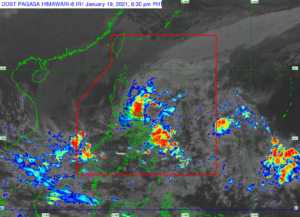MANILA, Philippines — The Philippine General Hospital on Tuesday said it still has no idea on the brand of vaccine that will be administered to its front-liners and other healthcare workers.
“There were many people asking what type of vaccine would be administered to our health care workers that are considered a priority by the government. We still have no official and certain answer to this,” the state-run hospital said in a statement.
“But as soon as the vaccine gets approval from the Food and Drugs Authority, and an Emergency Use Authorization is issued, we could be sure this has a high rate of safety. This certainly has reached the efficacy level set by experts,” it added.
The PGH is one among the three hospitals in Metro Manila expected to first get vaccine supply from the government. The other two are the Lung Center and Jose Rodriguez Memorial Medical Center.
Last week, the PGH formed its PGH Vaccine Deployment Committee led by Dr. Teresa Benedicto and Cecille Peña.
The PGH said the team had already prepared a master list and employee profiling scheme to determine how many employees and front-liners will be inoculated.
The team will also be trained to ensure safe vaccination.
Safe for vaccination, according to the PGH, are lactating and pregnant mothers but the latter should consider the level of COVID-19 community transmission, personal risk of contracting the disease, the risks of COVID-19 and its potential risk to the fetus.
Immunocompromised individuals may receive vaccination provided they have no contraindications to vaccinations.
For persons inoculated for COVID-19 while they are on chemotherapy or immunosuppresing drugs and who have since regained their immune competence, revaccination is not recommended.
COVID-19 vaccine could also be given to persons who received monoclonal antibodies or convalescent plasma treatment of COVID-19.However, vaccination, it said, should be deferred for at least 90 days after receiving such treatment.
“Based on the estimated half-life of these treatments, as well as evidence suggesting that reinfection is uncommon in the 90 days after the initial infection, delaying vaccination is a precautionary measure to avoid interference of the antibody treatment with vaccine-induced immune responses,” PGH said.
Those who have a history of COVID-19 may also get a vaccine but should be deferred until recovery and until criteria have been met for them to discontinue isolation.
Those infected with COVID-19 within the last 90 days may defer vaccination until the 90-day period.


